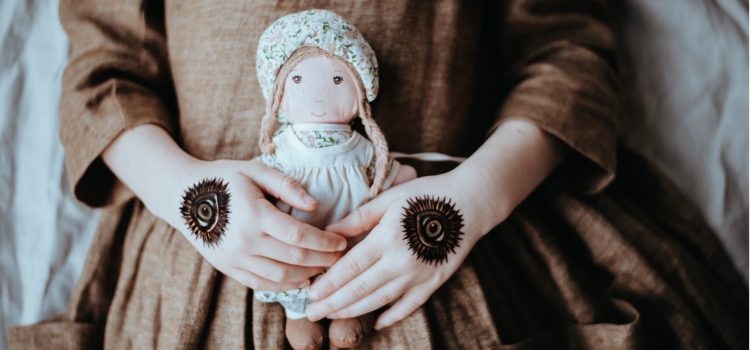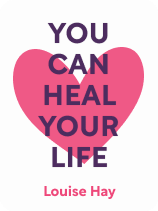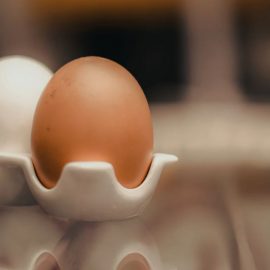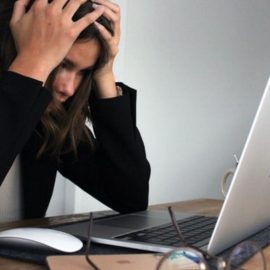

This article is an excerpt from the Shortform book guide to "You Can Heal Your Life" by Louise Hay. Shortform has the world's best summaries and analyses of books you should be reading.
Like this article? Sign up for a free trial here.
How do childhood experiences affect adulthood? Can childhood trauma cause permanent damage?
According to Louise Hay, the author of You Can Heal Your Life, all of the problems in our lives are the result of negative experiences we had in childhood. Specifically, the negative beliefs we internalized as children create negative experiences in our adulthood.
Keep reading to learn about the psychological effects of childhood.
Negative Childhood Experiences Create Negative Beliefs
Hay says that when we’re children, we mirror the thoughts of the adults around us. For example, if your parents told you that you were stupid when you were a kid, you’re likely to believe that you’re stupid later in life—and to talk to yourself in the same shaming way that your parents once talked to you. (If, on the other hand, they praised you and constantly reminded you how much they loved you, you’re likely to love yourself when you’re older.) Similarly, if your parents were cruel to each other or to you, you learn to relate to others with cruelty.
Negative Beliefs Create Negative Adult Experiences
Hay asserts that once our belief systems are formed in childhood, we spend our lives “creating” experiences that mirror those beliefs.
How exactly does this happen? How do childhood experiences affect adulthood? Hay claims that the belief systems we learned as children act as a type of filter through which we view the world, causing us to accept as “true” only the experiences or information that confirm our existing, subconscious beliefs. For example, if you were told as a child that you were a failure who would never amount to anything, then you’ll subconsciously believe that you’re a failure. Even if you go on to live a life full of career or personal successes, you’ll focus on your mistakes instead—and continue to see yourself as a failure. In this way, your thoughts “become” your reality.
Not only do your subconscious beliefs affect your perspective on the world, argues Hay, but your subconscious mind also believes everything your conscious thoughts tell it. When you think negative thoughts, your subconscious believes them to be true. Hay claims that as a result, you “attract” negative experiences into your life. For example, if you spill your coffee on your way to work and think to yourself, “This is the beginning of an awful day,” then your negative mindset will cause bad things to happen to you for the rest of the day.
Examples From Hay’s Life
Hay’s own life led her to believe that all problems are rooted in negative childhood experiences. She grew up poor during the Great Depression, with a stepfather who abused her. She was raped by a neighbor around the age of five, and was frequently told that it was her fault. She continued to experience sexual and physical abuse throughout her childhood until she ran away from home at age 15.
As Hay grew older, she had many relationships with abusive men. She believes this was because of the abuse she suffered as a child, which damaged her self-esteem so much that she unconsciously thought she deserved to be mistreated. Later, as her sense of self-worth improved and she stopped believing that she deserved abuse, she stopped dating abusive men.
In addition to her relationship issues, Hay was diagnosed with cancer as an adult. She already believed that cancer was caused by longstanding resentment and anger (and she’d written a book, Heal Your Body, arguing that negative thoughts can cause illness). She thought her own cancer was caused by resentment toward her parents for how they’d treated her when she was a child. Her childhood lacked love and her parents’ criticism of her had taught her to criticize herself, so she resolved after her cancer diagnosis to change her critical thoughts and start loving herself. She did this in part by repeating positive affirmations to herself in front of a mirror.
She also went to therapy. The therapist helped her release her anger about the abuse she’d suffered as a child, and also helped her understand that her parents had hurt her because they’d been hurt themselves. Understanding the ways in which her parents were damaged helped Hay have compassion for them and, ultimately, forgive them. Hay says that after only six months, by learning to love herself and forgiving those who’d hurt her, she cured herself of cancer. As we’ll see throughout this guide, Hay credits her healing with positive thinking, forgiveness, and self-love.
| Childhood Trauma and Mental and Physical Health The childhood emotional, physical, and sexual abuse that Hay describes are known in modern psychological literature as trauma. Trauma research tends to support Hay’s theory that childhood trauma alters our beliefs on a subconscious level, which can lead to negative experiences in adulthood. However, Hay’s claim that conscious negative thoughts “attract” or “create” negative experiences—and its corollary, the idea that altering your conscious thoughts is sufficient to heal your trauma—is unsupported by scientific evidence. Psychiatrist Bessel van der Kolk, in his best-selling book The Body Keeps the Score, explains that traumatic experiences actually rewire the brain to make people hypervigilant to threats. The slightest hint of a threat sends trauma survivors into a fight-or-flight response, causing stress hormones to flood their bodies and keep them in a state of hyperarousal long after the threat is gone. Over time, these high levels of chronic stress can cause mental and physical ailments and hamper trauma survivors’ ability to function emotionally and socially. Thus, in some respects, Hay’s theory that negative childhood experiences lead to negative life experiences bears a resemblance to more recent theories of trauma. Trauma changes the way the brain works on a subconscious level, causing adults who have experienced childhood trauma, as Hay did, to struggle to take control of their lives, have functioning relationships, and stay mentally and physically healthy. However, this same research tells us that trauma rewires survivors’ brains in such a way that many actions are beyond their conscious control, which contradicts Hay’s assertion that positive self-talk can change the way they see the world. |

———End of Preview———
Like what you just read? Read the rest of the world's best book summary and analysis of Louise Hay's "You Can Heal Your Life" at Shortform.
Here's what you'll find in our full You Can Heal Your Life summary:
- The causes and effects of negative beliefs
- How to transform your negative thoughts into positive ones
- How to solve your problems with relationships, money, work, and even illness






